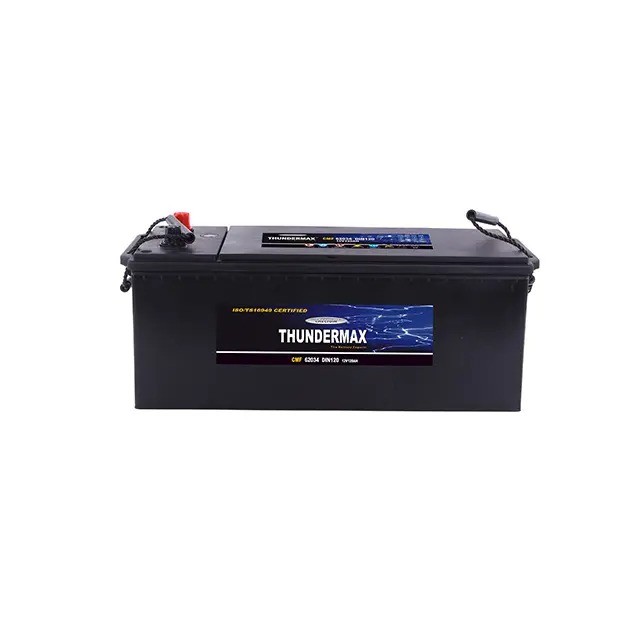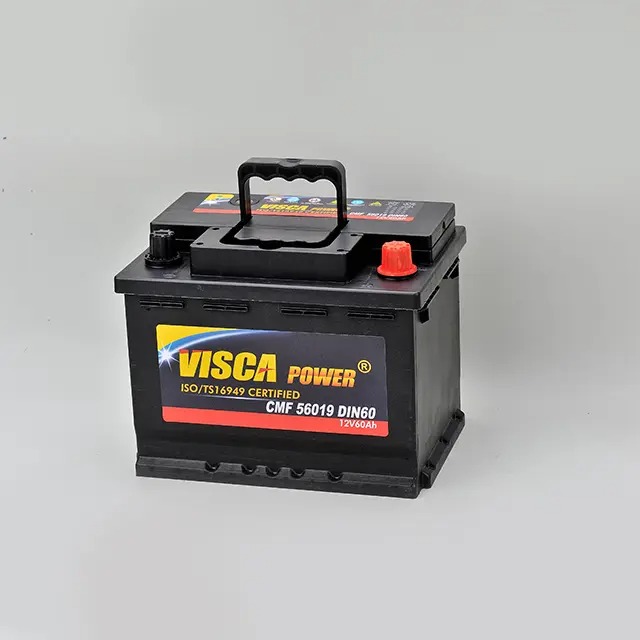Maintenance Free Series Batteries Vs. Traditional Batteries: Pros And Cons
Views: 194 Author: Site Editor Publish Time: 2025-08-25 Origin: Site
In the rapidly evolving world of automotive and energy storage solutions, battery technology plays a pivotal role in performance, reliability, and user convenience. Among the options available today, Maintenance Free Series Batteries have emerged as a prominent choice for both everyday users and professional applications. Unlike traditional batteries, which often demand regular maintenance and careful handling, maintenance-free batteries offer a modern approach to energy storage. This article delves deep into the pros and cons of maintenance-free batteries compared to traditional batteries, offering insights for informed decision-making.
Understanding Maintenance Free Series Batteries
Maintenance free series batteries, as the name suggests, are designed to operate efficiently without requiring routine electrolyte top-ups or other manual interventions. These batteries commonly feature advanced technologies such as sealed lead-acid or AGM (Absorbent Glass Mat) designs, which prevent spillage and reduce the risk of corrosion. For example, their colloid or gel-based electrolyte systems provide stable voltage output and longer service life under various conditions.
One of the main benefits of maintenance-free batteries is their user-friendly design. By eliminating the need for periodic water additions, users save both time and effort, particularly in applications such as RVs, marine vehicles, or backup power systems. Furthermore, these batteries often demonstrate better resistance to vibration and shock, making them suitable for off-road vehicles or industrial machinery where traditional batteries may suffer from early wear and performance degradation.
Additionally, maintenance-free batteries provide enhanced safety. Sealed construction minimizes acid leakage and reduces the risk of harmful gases, which is a common concern with conventional flooded lead-acid batteries. This makes them ideal for indoor or confined installations, including solar energy storage and emergency power systems. Overall, maintenance-free batteries present a compelling choice for users seeking convenience, reliability, and a longer lifespan without the hassle of routine maintenance.

Key Advantages of Maintenance Free Series Batteries
When considering battery upgrades, the advantages of maintenance-free batteries are evident. First and foremost is their longevity. High-quality maintenance-free batteries are designed to withstand deep discharge cycles better than traditional batteries, which often require careful monitoring to avoid damage. Their robust internal construction reduces sulfation, a common cause of premature failure in conventional batteries.
Another significant benefit is consistent performance. Maintenance-free batteries maintain a stable voltage output over extended periods, ensuring that connected devices, vehicles, or machinery operate efficiently. This reliability is particularly crucial in critical applications like medical equipment, emergency backup systems, or renewable energy installations, where power interruptions can cause severe consequences.
Maintenance-free batteries also offer ease of installation and portability. Due to their sealed design, they can be mounted in various orientations without the risk of acid leakage. This flexibility makes them suitable for compact spaces or unconventional battery compartments. Moreover, these batteries often feature low self-discharge rates, allowing them to retain charge over long periods when not in use—a notable improvement over traditional batteries that may lose capacity quickly.
Understanding Traditional Batteries
Traditional batteries, typically referred to as flooded lead-acid batteries, have been the standard in automotive and industrial applications for decades. These batteries rely on a liquid electrolyte that must be monitored and topped up regularly to maintain proper performance. While they offer a lower upfront cost compared to maintenance-free alternatives, traditional batteries come with several limitations.
One of the main drawbacks of conventional batteries is their requirement for regular maintenance. Users must check electrolyte levels, clean terminals, and ensure proper ventilation to avoid gas buildup. Neglecting these tasks can result in reduced lifespan, sulfation, and even safety hazards. Traditional batteries also tend to be heavier and more prone to leakage, making them less convenient for portable applications or installations in compact spaces.
However, traditional batteries do offer some advantages, such as lower initial cost and wide availability. In situations where budget constraints are critical or where battery replacement is frequent, conventional batteries may still be considered viable. Nevertheless, for users prioritizing convenience, safety, and consistent performance, maintenance-free series batteries have become the preferred solution.
Comparing Performance: Maintenance Free vs. Traditional Batteries
The performance comparison between maintenance-free and traditional batteries can be summarized in several key areas. Consider the table below for a side-by-side analysis:
| Feature | Maintenance Free Batteries | Traditional Batteries |
|---|---|---|
| Maintenance Requirement | None | Regular water topping and inspection |
| Lifespan | 4-8 years | 2-5 years |
| Safety | Sealed, reduced acid leakage | Open, higher risk of acid spills and gas buildup |
| Vibration Resistance | High | Moderate |
| Initial Cost | Higher | Lower |
| Portability | Flexible installation | Limited orientation due to acid spillage |
From the comparison, it is evident that while maintenance-free batteries require a higher initial investment, their benefits in longevity, safety, and convenience often outweigh the cost for long-term use. Traditional batteries, despite being more affordable, demand ongoing attention and pose potential risks in certain environments.

Common FAQs About Maintenance Free Series Batteries
To help potential users make informed decisions, below are some frequently asked questions:
Q1: Can maintenance-free batteries be overcharged?
Yes, overcharging can reduce battery lifespan, but many maintenance-free batteries are designed with internal pressure relief valves to prevent excessive damage.
Q2: Are maintenance-free batteries suitable for all vehicles?
Most maintenance-free batteries are compatible with cars, RVs, boats, and industrial applications, provided the voltage and capacity match the system requirements.
Q3: How long do maintenance-free batteries typically last?
High-quality maintenance-free batteries generally last 4 to 8 years, depending on usage patterns, temperature, and charging practices.
Q4: Can these batteries be stored without use?
Yes, due to their low self-discharge rate, they can be stored for extended periods. It is recommended to recharge them periodically to maintain optimal performance.
Conclusion
Choosing between maintenance-free series batteries and traditional batteries ultimately depends on your priorities. If convenience, safety, long-term reliability, and low maintenance are important, maintenance-free batteries are the superior choice. They are especially valuable for applications where frequent access to the battery is difficult, or where uninterrupted performance is critical.
On the other hand, traditional batteries remain an option for those with budget constraints and the willingness to perform regular upkeep. However, in today’s fast-paced environment, the advantages of maintenance-free batteries—enhanced safety, longer lifespan, and flexible installation—make them an increasingly popular solution for modern energy storage needs.
By understanding the differences and weighing the pros and cons, users can select the battery type that best aligns with their operational requirements, ensuring both performance and peace of mind.



